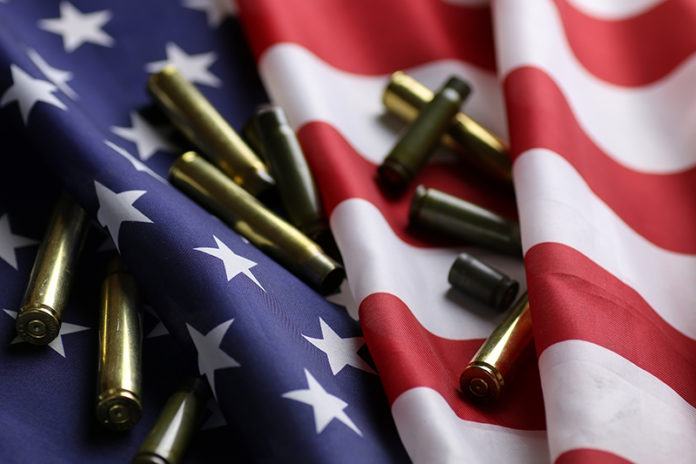The modern era of gun rights began in 2008, when the Supreme Court struck down the District of Columbia’s near-total ban on handgun ownership. It later overturned a similar Chicago ordinance. Both were serious infringements on a freedom enshrined in the Second Amendment — “the right of the people to keep and bear arms.”
But gun rights advocates are not content with eliminating stringent regulations on firearms ownership and use. They oppose minimal ones as well. An Illinois circuit court judge recently ruled that the state’s requirement of a license to own a gun is unconstitutional, at least when applied to someone keeping a firearm at home.
The case arose after deputies in downstate Carmi responded to a report of shots fired inside the home of Vivian Claudine Brown. Though they found no evidence of shots fired, they did find a rifle in her bedroom.
That would have been fine except for one thing: Brown didn’t have a Firearm Owner’s Identification card, which the state requires for any resident to buy or possess a gun or ammunition. The card, which requires a $10 application fee and is good for 10 years, is available to anyone 21 or older, except for felons, “mental defectives,” drug users, undocumented immigrants and the like. She was charged with a misdemeanor.
Brown’s lawyers argued that she was an upstanding soul who was otherwise entitled to keep a gun at home and that punishing her for failing to get a FOID card violated her rights. In April, Circuit Judge T. Scott Webb issued a sweeping decision siding with Brown.
The state, he wrote, “has created an entirely new group of people to be excluded from the Second Amendment — unlicensed, law-abiding citizens within the privacy and confines of their own homes.” He declared that “any fee” applied to someone in these circumstances is unconstitutional.
That conclusion rests on an absolutist view of the Second Amendment that is at odds with common sense and the Supreme Court’s decisions. The requirement didn’t exclude Brown from the Second Amendment any more than parade permits exclude protesters from the First Amendment.
The system reinforces existing federal laws that disqualify certain people from obtaining firearms, while causing only a negligible inconvenience for gun owners. (I speak from experience as a longtime FOID card holder.) It serves to deter the ineligible from keeping guns they are forbidden to have.
It can block them from purchasing firearms or ammunition from licensed dealers or private sellers — who are required to verify that the buyer has a valid FOID card. It functions as a universal background check.
Gun rights advocates revere the 2008 Supreme Court decision and Antonin Scalia, who wrote the opinion. But there is no reason to think that he or his fellow justices would have torched this law.
Wrote Scalia then, “Nothing in our opinion should be taken to cast doubt on longstanding prohibitions on the possession of firearms by felons and the mentally ill, or laws forbidding the carrying of firearms in sensitive places such as schools and government buildings, or laws imposing conditions and qualifications on the commercial sale of arms.” These prohibitions apply even in private homes.
In that case, a D.C. police officer named Dick Heller wanted to register a handgun to keep at home, but the city government refused to grant him a license to do so. The city’s authority to require licenses was not contested.
As Scalia noted, his lawyers “conceded at oral argument that the D.C. licensing law is permissible if it is not enforced arbitrarily and capriciously.” The effect of the ruling was that D.C. had to issue him a license.
Brown’s problem was not that Illinois was arbitrary and capricious in issuing FOID cards. In fact, it’s consistent and permissive in doing so (though the pandemic has created delays in processing). Her problem was that Illinois required a FOID card at all.
But that’s not asking too much. “If the state may set substantive requirements for (gun) ownership, which Heller says it may, then it may use a licensing system to enforce them,” Judge Frank Easterbrook of the U.S. Court of Appeals for the 7th Circuit, appointed by President Ronald Reagan, wrote in a 2016 opinion.
It’s important for the state of Illinois to respect the right of citizens to own and use guns. It’s also important for it to strive to keep guns away from those who shouldn’t have them. For those commendable purposes, the FOID system is right on target.

































